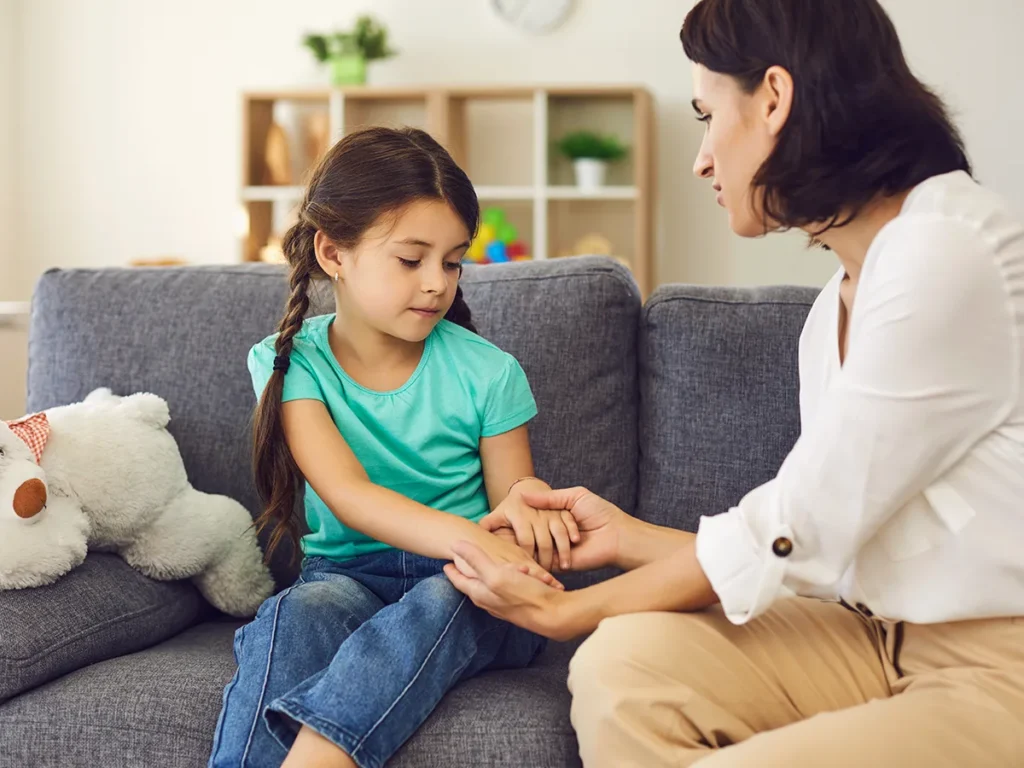
Summary: Parents who see the advantage of learning to keep stress in “the safe stress zone” can then take proactive steps to reduce stress at home and teach their children better-coping mechanisms.
Dear Dr. Sylvia,
I need a more effective way to handle the conflicts and yelling at home. My children are fine and fun … until they don’t agree with each other.
I can send them to their rooms and demand a time-out. However, that line of defense is getting old.
I can yell (yes, I do that!) and give hefty punishments by taking away privileges. It doesn’t work long-term.
As a result, I need new and effective ways to calm it down at home.
I need stress management for parents.
Thus, from being a student of your work on patterns, I know that what I am teaching my son and daughter will go with them into adulthood.
Stress won’t disappear; however, it can be managed in “the safe stress zone.”
You talk about “moving from the shouting or stuffing of upset to living in “the safe stress zone.”
In other words, what, as a parent, do I need to help them (and me) practice safe stress?
I would appreciate the map of how to get there,
Signed,
Exhausted Parent
Dear Exhausted Parent,
In my book, Invisible Stress (It’s NOT What YOU Think!) I have all the details of better eating, better exercise, information about eustress, acute and chronic stress, and better communication to keep pressure healthy.
Just one hint about food. Berries, ah, blueberries, raspberries, and blackberries are your friends to limit stress. They are sweet enough and will help you calm down just enough to see through a less upset lens.
So many parents have been asking for specifics for methods to use at home, so I am adding a short handbook for parents with specifics for the family unit. It has practical strategies for stress reduction.
It will be ready for distribution in another month.
The name, so be on the lookout, is” The Ultimate Stress Mastery Handbook for Parents as Leaders,” which is a companion to “Invisible Stress” and the “Stress Mastery online program.”
I have pulled together many methods to work things out and not let resentment fester.
Parents who teach their children positive coping skills help them become better business people and life partners.
Thus, I have included some thoughts from the almost-ready parents’ handbook.
As an illustration, here is a list of the ten most important areas to consider. Thus, you will have more methods to get the children (and you) to move from either the “shout it out” or the “stuff it down” side of the road to the middle ground where, yes, you practice safe stress.
Stress mastery is good for you, me, and the planet.
In other words, here is what you need to consider. I’ve included a few stories from clients to help you see a better way.
Understand the Impact of Stress: Once you understand the true impact of stress on your children and family dynamics, you are empowered to act and address stress more effectively.
There is such a thing as parental stress impact children cause when they are “just being kids.”
Practical Strategies: Here are helpful strategies to manage stress at home. Here you get a range of actionable tips, techniques, and coping mechanisms to immediately implement to reduce stress levels and create a more harmonious environment.
Strengthening Relationships: Chronic stress can strain relationships within the family unit. Here are insights on nurturing and maintaining relationships amidst pressure, promoting better communication, empathy, and understanding between parents and their children.
Identifying Stress Triggers: Many parents struggle to identify the root causes of stress at home. This is a guide for parents to recognize everyday stress triggers and help to manage or mitigate those triggers effectively.
Emotional Support: Stress can emotionally affect both parents and children. Here we offer guidance on providing emotional support and creating a safe space for everyone to express their feelings, fostering a more resilient and emotionally healthy family unit.
Parenting is a constant journey that always needs new, improved methods of resolving conflicts at home.
Enhancing Parenting Skills: Parenting is a continuous learning journey, and this e-book can serve as a valuable resource to improve parenting skills specifically related to stress management. It can offer insights into effective discipline strategies, setting boundaries, and nurturing a supportive home environment.
Modeling Healthy Coping Mechanisms: Parents are role models for their children. By showcasing healthy coping mechanisms in this e-book, parents can learn to manage stress positively and teach their children valuable life skills that can last a lifetime.
Promoting Well-being: Stress affects not only mental health but also physical well-being. My e-book can guide promoting holistic well-being within the family, including tips on healthy eating, regular exercise, and self-care practices that can alleviate stress symptoms.
Improving Academic Performance: Stress at home can significantly impact a child’s academic performance. We address this concern by offering strategies to create an optimal study environment, manage time effectively, and support children in achieving their educational goals despite stressful circumstances.
Building Resilience: Resilience is crucial for navigating life’s challenges. Parents can be equipped with the knowledge and tools to foster resilience in their children. This helps them develop the ability to bounce back from stress and adversity, ultimately leading to stronger individuals and families.
Specific sentences are proven to decrease stress and increase positive relationships.
Now, let me include stress mastery sentences for parents to decrease stress with children:
“I understand you’re feeling upset right now. Let’s take a deep breath together to help calm our emotions.”
“It’s okay to feel angry or frustrated, but let’s find a positive way to express those feelings.”
“I’m here for you. Let’s discuss what’s bothering you and find a solution together.”
“When things get tough, let’s use our ‘calm down’ strategy – maybe we can count to ten or squeeze a stress ball.”
“Remember, we’re a team. We can handle any challenge that comes our way as long as we work together.”
“I love you no matter what. Let’s figure this out calmly, without yelling or blaming.”
“Feelings come and go. Let’s focus on finding a solution rather than dwelling on the problem.”
“I’m proud of your efforts. Even if things don’t go perfectly, we learn and grow from each experience.”
“Taking a short break helps me think clearly when I’m stressed. Would you like to take a break together?”
“Mistakes are opportunities to learn. We can fix this and make things better.”
I have included three stories to give you a clearer unique understanding of how these stress techniques work:
A deep breathing ritual can differentiate between getting angry and finding positive solutions.
The Deep Breath Ritual: One evening, Amy’s daughter, Emily, was overwhelmed by schoolwork. Instead of getting frustrated, Amy gently put her arm around Emily and said, “I can see you’re stressed. Let’s do our deep breath exercise together.” They took a few slow, deep breaths, and Amy noticed Emily visibly relaxed. This simple ritual became a tool they used whenever emotions ran high, helping both mother and daughter find calm and understanding.
We can all count to ten and decrease stress by discussing negative situations.
The Count to Ten Strategy: Mark remembered the “count to ten” strategy during a heated argument with his son. He paused and said, “Let’s count to ten before we continue talking.” As they counted together, the tension eased, and they started discussing their feelings more calmly. Mark’s son even suggested using the strategy in the future, showing how a shared coping mechanism can defuse stressful situations.
Meet children where they are rather than where you wish they would be.
Turning Mistakes into Learning Moments: David’s son, Jake, was upset after making a mistake in his soccer game. Instead of reprimanding him, David knelt and said, “Everyone makes mistakes, Jake. It’s how we learn and improve. Let’s talk about what happened and think about how you can do better next time.” Jake’s frustration turned into determination, and he embraced the opportunity to learn from his error, transforming stress into a valuable life lesson.
In brief, these sentences and stories illustrate how parents can guide their children through stressful moments, fostering emotional growth, problem-solving skills, and strong bonds within the family.
Want more? Along with the Invisible Stress book, there is a four-module Stress Mastery online program full of ways to limit the negative impact of stress.
To your success,
Sylvia Lafair
PS. And if you are interested in adding a certificate of mastery to teach others these innovative methods of pattern transformation in the book/course, please get in touch with me at sylvia@ceoptions.com for more information.


